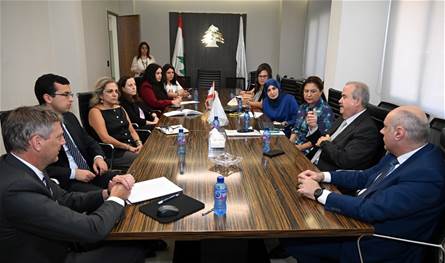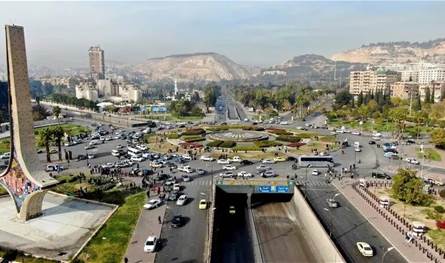Does Lebanon face with the international community?

Newspaper
The President of the Republic, General Joseph Aoun, opened the way for the cabinet session next Tuesday to withdraw the Hezbollah weapon and set the integrated general framework for its decisions, by emphasizing the restriction of weapons in the hands of the state and working to achieve it, in exchange for demanding the strengthening of the army and its support with ten billion dollars over ten years, and focusing on the importance of the Israeli withdrawal from the south, stopping the attacks and violations, release the prisoners, and starting the path of reconstruction.
This means opening the door seriously to the discussion in the executive mechanism to implement the exclusive weapon, which must be associated with the pressure on Israel to implement the last November agreement, which is trying to get out of it to a new agreement. What Aoun wants is the understanding with the head of the government, Nawaf Salam and the House of Representatives, Nabih Berri, to come up with a unified position, interacting with the paper of the American delegate Tom Brak. Noting that international pressure focuses on the need for the government to leave with a public and official decision in which Lebanon is committed to the item of withdrawing weapons, and a specific time limit to achieve this. It is the first time that the arms file has been officially brought up and serious at the government table decades ago. In the past, the Lebanese considered that the solution to the Hezbollah crisis should be within the treatment of the regional file, and this is not in the hands of the Lebanese state. During the recent war, the Lebanese authority was transmitting messages, and concerned with the issue of keeping pace with the war in the social sense, and all negotiations were taking place with the party through the Lebanese state. The strikes were focused on the party, and the state and its facilities were neutralized, and the statements were clear that Lebanon succeeded in removing the specter of this war from its public facilities and its infrastructure. Today the matter is reversed, as the state is concerned with finding a solution to the dilemma of weapons, and it is raised in the ministerial government statement and all positions is the position of work to limit weapons in the hands of the state.
Thus, the Lebanese authority has become at the heart of the direct confrontation, either with the international powers or with Hezbollah, which will be witnessed by the cabinet session next week, which swings between a clear answer that satisfies the outside, and between an attempt to dilute the usual Lebanese base to avoid an internal clash, and here it is necessary to wait for how the international powers grab this decision or the situation. There is someone who considers that if the government is not able to approve a clear plan that includes a timetable for withdrawing and adhering to weapons, Lebanon will be in the face of the international community, with what this means from an Israeli military escalation, in exchange for a decline in the level of interest in the Lebanese file, the lack of any assistance, and the return of Lebanon to the path of neglect. In the event that the government developed a scheduled time plan to withdraw the weapon clearly, this will put before it the challenge of implementation and how to persuade Hezbollah by this, knowing that the party’s circles indicate that it will not allow any weapon to be delivered before Israel’s commitment to the last November agreement, withdrawing and stopping strikes, and believes that the actual entrance to address the arms file is dialogue. This will lead to street tensions, or a political crisis that paralyzes the work of the government and the covenant. In a speech on the occasion of the Army Day, Aoun called yesterday, all political forces to seize the historical moment to perpetuate the exclusive weapon in the hands of the Lebanese army, warning of the continuation of “death, destruction, suicide and absurd wars” on the homeland. The President stressed that the army was able to extend its authority over the southern Litani area, which is “determined to complete its national duties”, calling on the Lebanese to “stand behind the army and unite loyalty to the state only.” The President made a direct appeal to “Hezbollah” and other Lebanese parties to hand over weapons “today before tomorrow”, stressing that “we will not compromise with those who do not mean rescue, or do not care about a homeland.” Aoun’s words came in the aftermath of the party’s Secretary -General Naim Qassem, in which he rejected what he described as “handing over weapons to Israel.” Aoun also revealed a Saudi initiative aimed at speeding up arrangements to stabilize stability on the Lebanese -Syrian border.
The post Does Lebanon face with the international community? appeared first on 961 tobay Lebanon today.
















